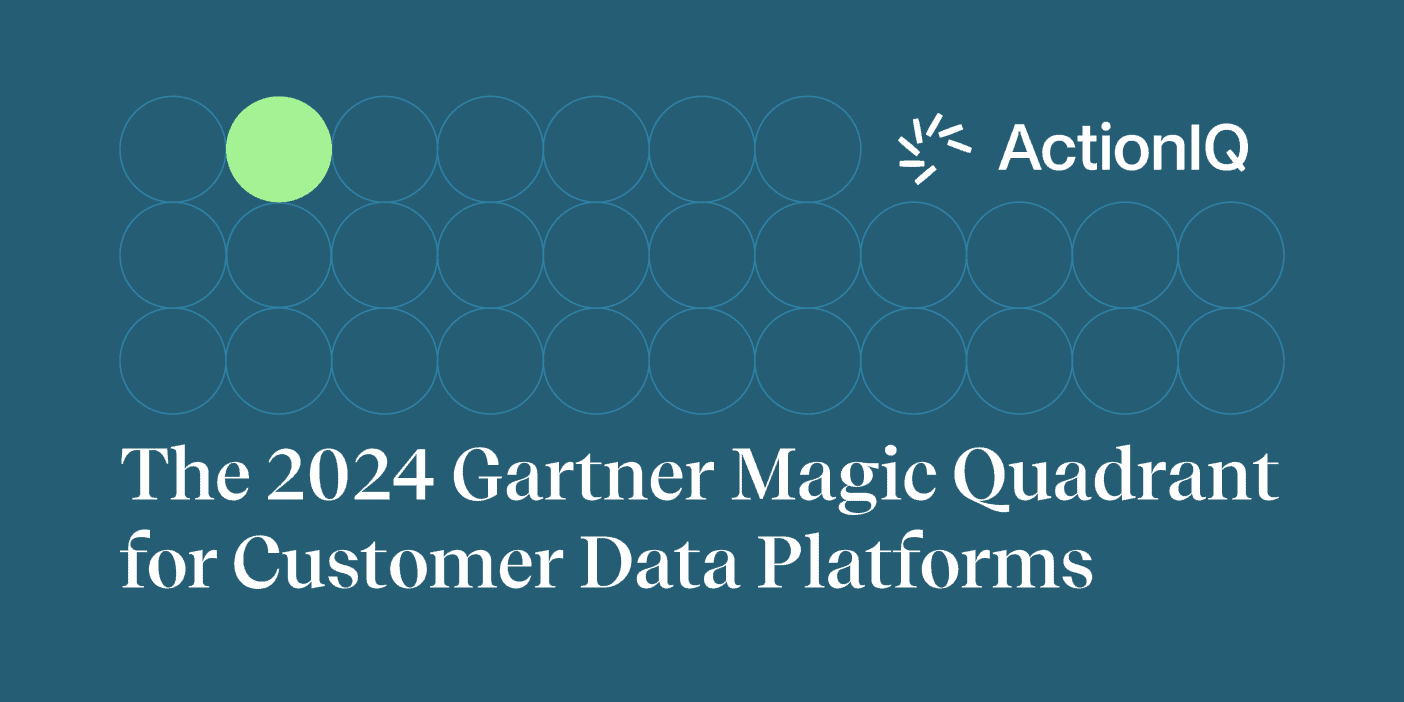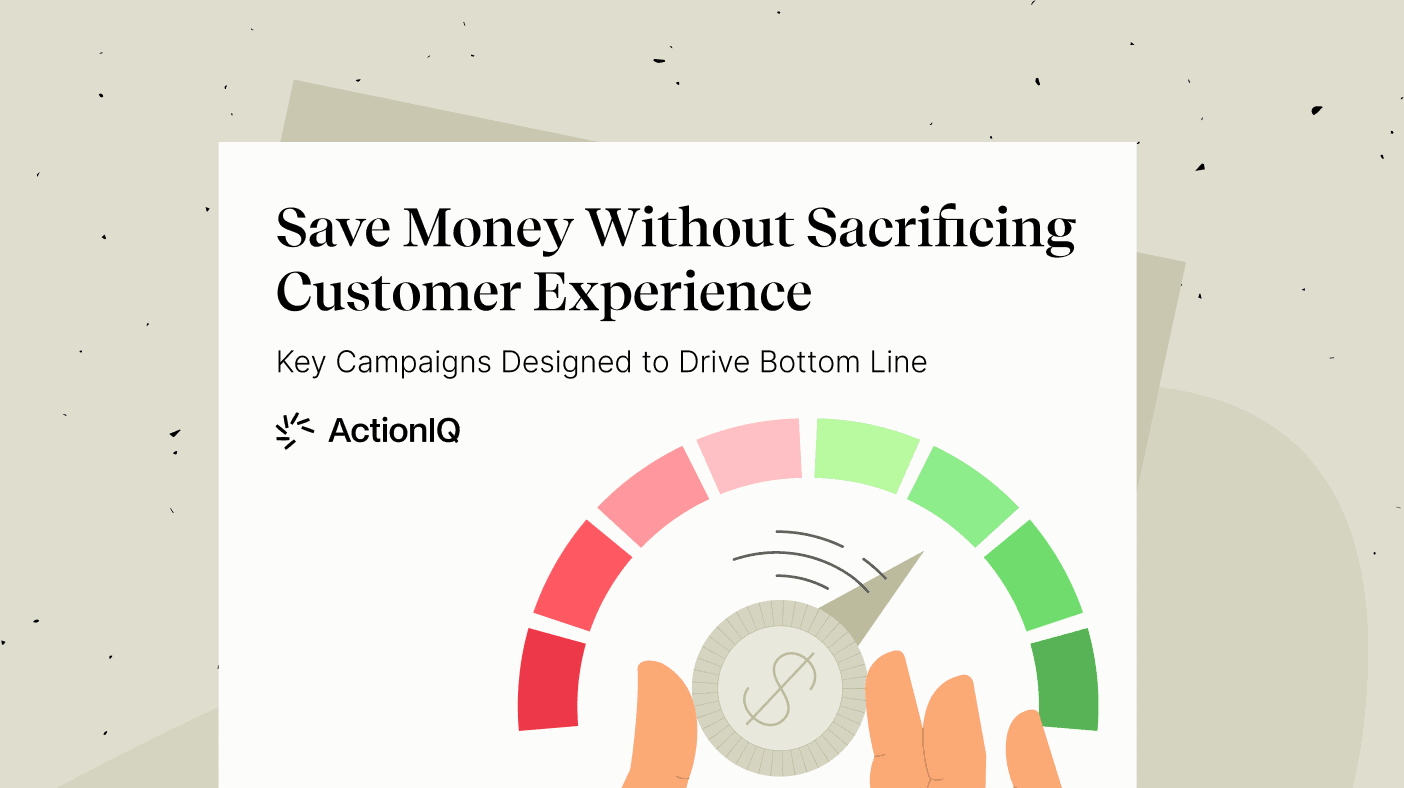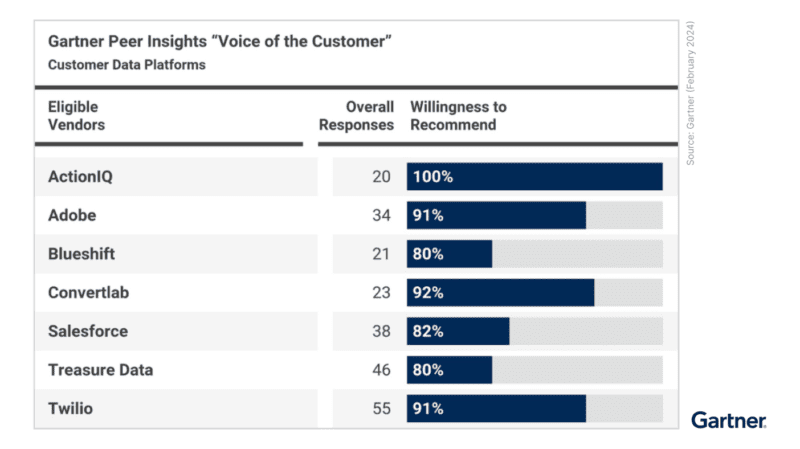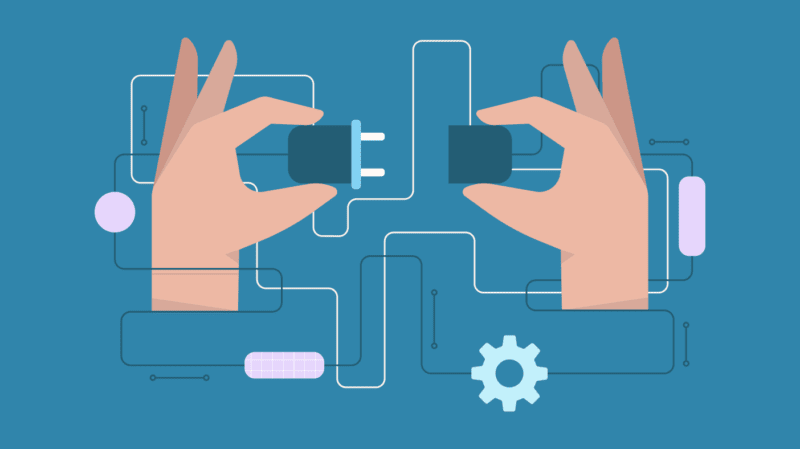Should I Buy vs. Build My Customer Data Platform?
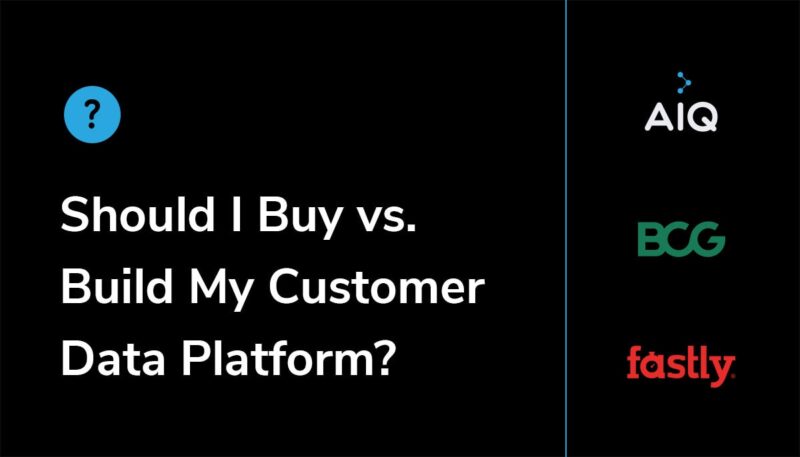
A Customer Data Platform (CDP) has become an essential capability for organizations to manage data and enhance their customer-centric strategy. The need for marketers to connect customer data and activate experiences from a single centralized location has unleashed a spectrum of vendor and in-house solutions. However, there are multiple similar offerings that can be easily confused with a customer data platform. For example, one of the most common is the difference between CDP vs DMP.
For many companies, the decision to build or buy a CDP is the starting point of their customer-centric transformation.
On 5/28 ActionIQ invited Nick Rockwell, SVP of Engineering at Fastly and Former CTO of the New York Times, and Stefano Fanfarillo Partner and Director, Personalization & Digital Marketing at Boston Consulting Group (BCG), to talk about some of the key considerations organizations must make when thinking about whether to build or buy their CDP.
The Importance of the CDP
What is a CDP “We think of the CDP as the technology and processes to support marketing operations in four key areas,” said Fanfarillo. These include:
- Integrating customer data across multiple sources
- Creating and maintain the 360 degree view of the customer including all interactions, behavior, purchases and more
- Developing relevant customer insights
- Supporting and orchestrating customer experiences across multiple channels and media
“If you are marketing to a substantial number of people and you want to exploit any kind of automation or sophisticated tactics, you are notionally using some kind of a CDP,” added Rockwell. It’s about automation at scale, and the question is “how much you’re willing to invest in doing that very, very well versus getting by with rudimentary tools.”
A CDP is “a fact of life, honestly, if you’re marketing to large numbers of people,” said Rockwell, and so it begs the question, how should organizations execute on delivering CDP capabilities — build or buy?
Why Companies Consider Building a Customer Data Platform
According to Rockwell, “There are a variety of motivations” in why organizations consider building a CDP. “One is the tendency most of us feel that our business is special and that there are unique characteristics…that make it difficult to conceive of a third party solution that will appropriately meet those requirements.”
Additional reasons organizations consider building a CDP include:
- Equating data and analytics to a CDP. Because data and analytics are an important component of a CDP, some organizations believe they already have most of what’s needed to deploy CDP capabilities.
- Perception that building is cheaper. Some organizations believe they can build the CDP cheaper by tailoring it to their specific requirements only, and by avoiding costs of an outside vendor or systems integrator.
- Protectiveness over data assets. An organization may view their data and analytics as a strategic asset, and feel reluctant to permit that asset to be handled by an integrator our housed within a vendor’s tools.
“It’s easy for a company to say ‘we have the data, we have the analytics, let’s just do it,’” said Rockwell. “I think it’s not true. As you get into this, you appreciate more of the criticality of the other elements of the CDP.”
Potential Pitfalls of Building a CDP
One of aspects of a CDP organizations often underestimate is the “importance of orchestration and a sophisticated UI to deploy in,” said Rockwell. “If you can’t quickly deploy and evaluate campaigns, you’re going to lose the value. The speed is so important.”
“User experience is a key aspect,” added Fanfarillo. “This is a solution operated by a marketing user, not an IT persona or a data scientist. An organization needs to be able to build and maintain for that.”
While homegrown CDPs can be successful at bringing data together, they are often not successful at being user friendly for marketing. If a user needs to make a change, add an attribute, or connect a new marketing engine, they need to go through IT. A solution intended to become a key enabler for marketing ends up becoming a bottleneck.
Integrations to data sources, new marketing tools and external channels are also important considerations. “The ability to evolve as they become available, the ability to connect to all of those—you need to look at this in your build vs buy CDP evaluation,” added Fanfarillo.
According to Fanfarillo, “probably the most important question you need to ask yourself is ‘do I have the skills, capacity, resources and talent to build the CDP,’” and maintain every aspect of it—from ingestion to activation to measurement, the full circle of marketing activities.
Getting to Value Quickly: A Different Perspective on CDP Implementation
For Fanfarillo, it comes down to whether an organization wants to take an engineering-centric approach or a marketing-centric approach. “The build option becomes an engineering challenge… as opposed to making this a marketing operations improvement challenge where you say ‘what CDP use cases am I trying to solve?’”
In the end, “buy vs build is a false dichotomy. In every build, you’re buying something—a workflow engine or a database or a message bus. In every buy, you’re building something—like integrations,” said Rockwell. “The goal of any project should really be, how do you build as little as possible? There’s always more to the project than you see, so the more scope you take out of the ‘build’ part is a big help for you.”
In the end, both experts agreed: “The devil is in the details, but if there’s a good buy option it should get you to value faster.”
More CDP Build vs. Buy Insights
Our experts went on to discuss a range of topics, sharing valuable additional insights such as:
- How to find the right CDP vendor
- Security and privacy concerns when evaluating CDP build vs buy
- Interplay between the CDP and the data lake
Be sure to catch every detail by watching the full-length video of ActionIQ’s Build vs Buy CDP Expert Discussion.

